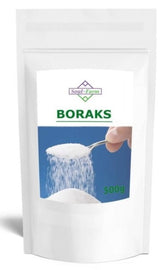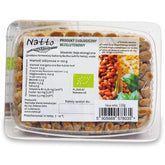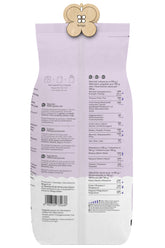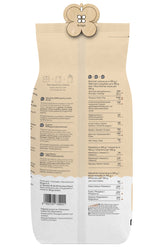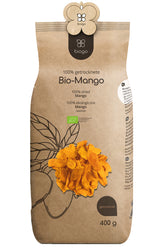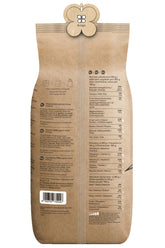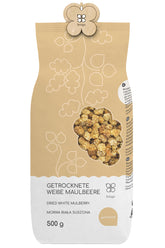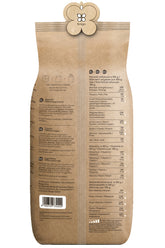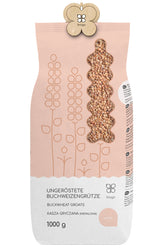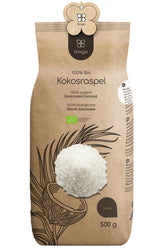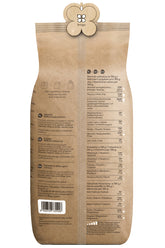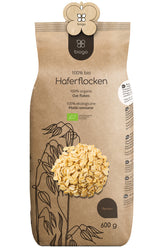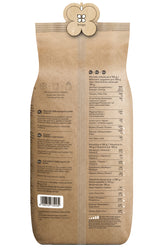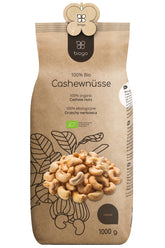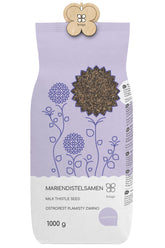Which ketchup should you choose and what parameters should you pay attention to when buying it?
- Interesting facts about ketchup
- First - tomatoes
- Second, sugar
- Third, food additives
- Fourth - Sweeteners instead of sugar
- Fifth - how to make ketchup at home?
- Summary
Ketchup is undoubtedly one of the most popular cold sauces in the world. Every day, we add it to sandwiches, pizza, and other various dishes. Therefore, we decided to focus on it and examine what effects it can have on our body and how to choose the best one. The fact is that we are most often guided by taste when choosing, after all, the products of individual manufacturers differ in many parameters. These additives, as well as their quantity, usually determine the quality and taste of ketchup. However, the most important parameter in this case is the tomato content in the finished product, because the nutrients they contain have the greatest health-promoting power.
Interesting facts about ketchup
Although ketchup probably needs no introduction, the fact of its original origins may come as a surprise. After all, it originated in China and, in its earliest form, had little to do with the product we know today. Loosely translated, the word simply meant fish seasoning. Shortly afterward, it took on a form similar to Polynesian fish soup, whose main ingredients were sardines, beans, and onions, but still without tomatoes. Interestingly, the product was very popular in Chinese taverns, and over time, red wine was added to sharpen the flavor. The breakthrough came around the 17th century, when this sauce made its way to Europe and, consequently, to England, where its evolution began. They began adding various spices, as well as paprika and tomato paste. Initially, it was extremely expensive, and only the wealthiest sections of society could afford it. However, at the end of the 19th century, it made its way to the United States in a slightly modified form, where modern-day ketchup was born. Henry John Heinz was responsible for this, developing the recipe based primarily on local taste preferences. In addition, he improved the production process, which made it possible to produce it on a much larger scale than before. Unfortunately, the consequence of this process was the gradual deterioration of ketchup's quality. Much lower-quality ingredients were used, and natural ones were simply replaced with artificial equivalents. Therefore, it's worth paying close attention to the label when choosing ketchup.
First - tomatoes
Tomatoes are undoubtedly the foundation and base of every ketchup. Unfortunately, this is where the fundamental problem with many ketchups arises. When choosing ketchup, it's worth checking how many grams of tomatoes are used to make 100 grams of finished sauce. The more the better, the better. It's believed that the highest-quality ketchups contain between 220 and 260 grams of tomatoes. However, finding them on store shelves is quite a challenge, and most popular ketchups contain much less. Sometimes, the values are as high as 150, 140, or even 120 grams of tomatoes in 100 grams of ketchup! These are best avoided. The safe and true limit is simply to choose products with a tomato content exceeding 200 grams. According to popular opinion, ketchup is not a healthy product, but this statement can be harmful. A high-quality product with a high tomato content can bring a lot of good. First and foremost, these vegetables contain enormous amounts of lycopene. Lycopene is a powerful antioxidant from the carotenoid group, excellent at fighting free radicals. It can be found up to three times more in processed tomatoes than in fresh tomatoes. They also contain potassium, which is essential for the proper functioning of the cardiovascular system. The organic acids found in tomatoes have cardioprotective properties, enhancing the breakdown of fatty acids in the liver. Good-quality ketchup is also a great source of vitamin C, as well as B vitamins and bromine, which contribute to the proper functioning of the nervous system.
Second, sugar
Simple sugars are the scourge of our time. They are added to almost all foods for flavoring and preservation purposes, but also as fillers. Ketchup hasn't failed to follow this trend. Although sugar is, to some extent, a natural component of ketchup, care should be taken to keep it as low as possible. In low-quality products, it can contain up to 35 grams per 100 grams. This means that in one tablespoon of ketchup we have about 1.5 tablespoons of sugar. It sounds really bad. The most common values on the market are 25 to 20 grams of sugar per 100 grams of ketchup. The highest-quality ones, however, usually contain less than 20 grams, and it's best to choose such products.
Third, food additives
It should be noted right from the start that many food additives are not harmful to health. We also find them in ketchup under the mysterious name "E." These products are often thickened with ingredients such as starch, xanthan gum, and guar gum. They don't have a negative impact on our bodies and are relatively safe, but having the option to choose ketchup without these unnecessary additives is worth considering. Preservatives can also be found in ketchup. In ketchup, these are most commonly sodium benzoate and potassium sorbate. Interestingly, potassium sorbate is one of the safest food preservatives, and its presence should not be a concern. Sodium benzoate is also safe, but it should be added that it can aggravate allergic symptoms, so, as mentioned above, it's worth looking for ketchup without these additives, although their presence is also normal in high-quality products. The last food additives to be discussed are acidity regulators. The most common are malic and citric acids. Their primary function is to acidify the product's environment, inhibiting bacterial growth and giving it the right flavor. You shouldn't be afraid of them, and their presence in ketchup is completely natural.
Fourth - Sweeteners instead of sugar
Recently, we've been able to find sugar-free ketchups on store shelves. This is excellent information for diabetics, as well as anyone who limits sugar in their daily diet. Such ketchups usually contain erythritol, stevia, or sucralose. These substances are the safest for our health and are designed to give the ketchup the right flavor. However, there is a fundamental problem with this type of product that we must pay special attention to. Zero-sugar ketchups may be of high quality, but in most cases, they contain much less tomato than their counterparts. Therefore, this parameter must be carefully monitored when choosing such a ketchup.
Fifth - how to make ketchup at home?
Making ketchup at home is very easy. Moreover, we won't miss the satisfaction and certainty regarding the ingredients and any possible changes.
Ingredients required:
- 1 kg of your favorite tomato variety
- 2-4 tablespoons apple cider vinegar
- 15 grams of sugar or even erythritol
- A small onion and a clove of garlic
- Favorite spices
Preparation of ketchup
- First wash the tomatoes and then cut them into quarters or even smaller pieces.
- Cut the garlic and onion into small cubes.
- Then, cover and simmer the prepared vegetables for about 25 minutes, taking care not to burn. It's a good idea to add a tablespoon of olive oil or other oil to the bottom of the pan beforehand.
- We mix the vinegar with the previously prepared spices in a bowl and boil until boiling. Then let the solution cool to allow the spices to develop their full aroma. You can also strain the vinegar through a sieve to remove the fine spice particles.
- Next, add the vinegar and spice solution to the vegetables and cook covered for the next 45 minutes, stirring occasionally.
- After cooking, let everything cool. Next, we rub the resulting mass through a sieve using a spoon.
- The final step is to mix the tomato paste with sugar/sweetener and add a pinch of salt and then cook for about an hour upon arrival.
- After this time, we let the finished ketchup cool down, but you can also puree it to get a better consistency.
Ready-made ketchup can be poured into previously sterilized jars and tightly sealed. In this case, the storage time in the refrigerator is approximately three weeks. If you want your ketchup to last much longer, you can pasteurize it, which allows it to be stored for up to a year.
Summary
High-quality ketchup can be an extremely healthy product. We can even make it at home to be absolutely sure of its ingredients. A high-quality product should be characterized by a high tomato content, but also by a low sugar content. All food additives are not harmful, but the fewer of them in ketchup, the better. On the other hand, low-quality ketchups can actually be harmful. This isn't just due to the low tomato content, but primarily due to the sugar, which, if consumed in excess, can lead to diabetes, as well as tooth decay and many other health complications.
THE PUBLISHER'S CHOICE
Almonds 1 kg BIOGO
- £11.00
£13.00- £11.00
- Unit price
- / per
Walnuts 800 g BIOGO
- £8.00
£10.00- £8.00
- Unit price
- / per
Dried organic mango 400 g BIOGO
- £10.00
- £10.00
- Unit price
- / per
Dried White Mulberries 500 g ORGANIC
- £6.00
£7.00- £6.00
- Unit price
- / per
Dried organic figs 800 g BIOGO
- £27.00
- £27.00
- Unit price
- / per
Unpeeled buckwheat groats 1 kg BIOGO
- £3.00
£3.00- £3.00
- Unit price
- / per
Organic coconut flakes 500 g BIOGO
- £9.00
- £9.00
- Unit price
- / per
Organic oat flakes 600 g BIOGO
- £4.00
- £4.00
- Unit price
- / per
Organic cashew nuts 1 kg BIOGO
- £18.00
- £18.00
- Unit price
- / per
Milk thistle seeds 1 kg BIOGO
- £4.00
- £4.00
- Unit price
- / per






